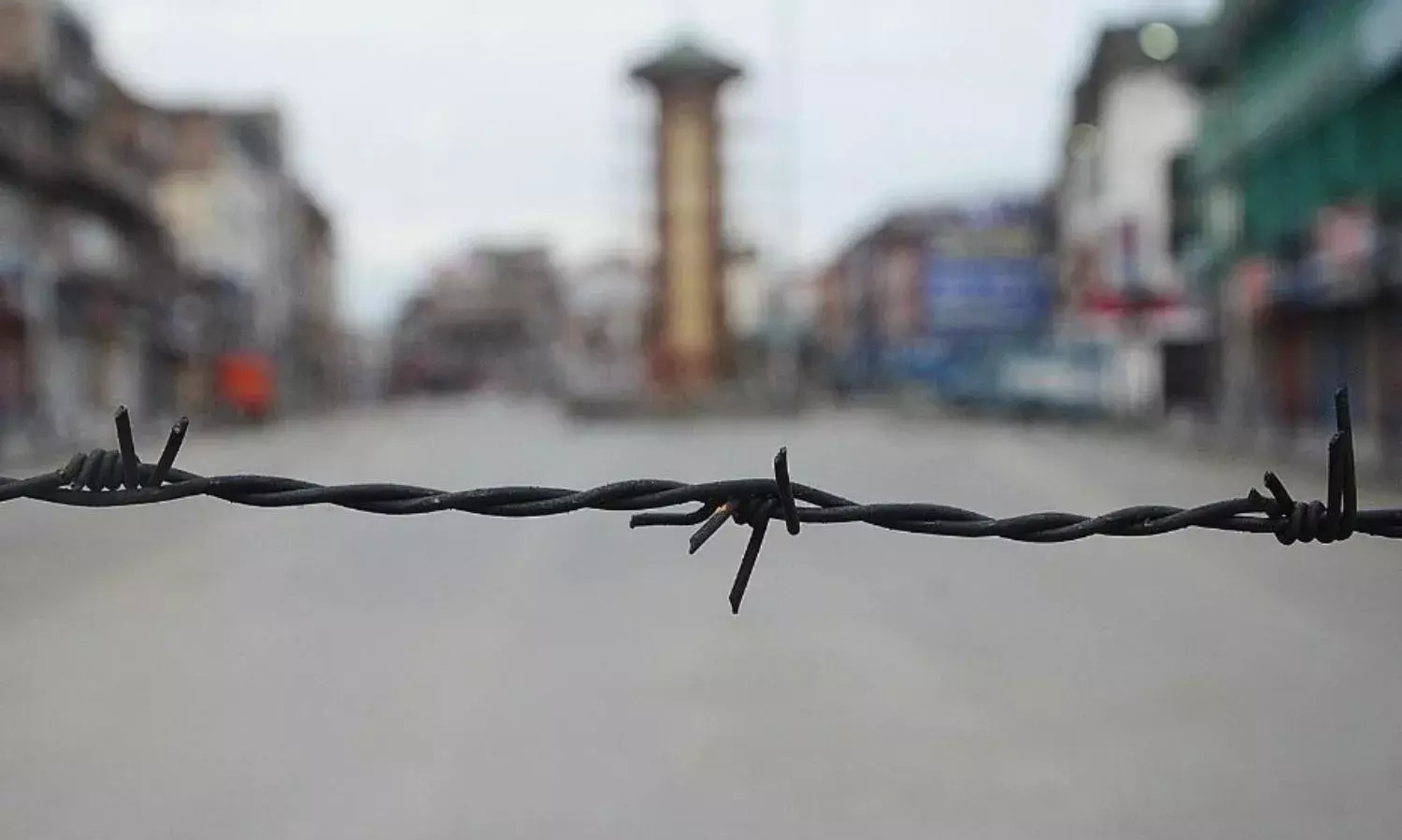‘We Speak and Stand for the People of Kashmir’
Students appeal to civil society

“We, the undersigned students, make an appeal to the civil society to stand by the beleaguered people of the state of Jammu and Kashmir, soon to be reorganised and reduced to the status of a union territory, as decreed by the majoritarian might of the Indian Parliament. The same was made possible by the Presidential Order, dated 5 August 2019, revoking the state’s special status, which stood protected under Article 370 of the Constitution, and had formed the very basis of its troubled accession to the Dominion of India in 1947.
On 2 August 2019, the Hindu reported that the government had asked Amaranth pilgrims to shorten their stay and urgently leave the state, citing intelligence inputs of “specific terror threats”, while deploying additional military troops. On 5 August 2019, the Telegraph reported that restrictions under Section 144, of the Criminal Procedure Code, were imposed in Srinagar, and former Jammu and Kashmir Chief Ministers, Mehbooba Mufti and Omar Abdullah, who have been part of mainstream Indian politics, were put under house arrest.
Subsequently, the residents of Jammu and Kashmir were faced with a complete communications blackout, with landlines, cellular connectivity, and internet services snapped, as their fate was unilaterally decided by politicians in New Delhi, in complete violation of the spirit of democracy and fundamental human rights, which entail popular participation in decision making and the right to self-determination. Following the imposition of restrictions, international news agencies such as the BBC, Reuters, and Al Jazeera have reported on the daily hardships being faced by the people in the valley.
By silencing the voices of the people of Jammu and Kashmir, through the deployment of military force and severance of communication lines, power exposed the fault lines of the world's largest democracy. This repression is inclusive of a brutal psychological warfare against a people claimed to be an integral part of the Indian body-politic.
Journalists and reporters have faced severe restraints on the production and circulation of reports from Kashmir, due to the curb on mobility and communication, seemingly an attempt to render the sufferings of the people of Jammu and Kashmir unarchived, dismembered from the received memory of humanity. Perhaps, the policy makers are aware of the fact that memory is resistance.
We note with serious concern that the valley of Kashmir has been a site of the most heinous human rights violations over the years, in which non-violent civilian protests have been met with brutal use of military force. The use of tear gas and shotgun pellet, sans discrimination, has claimed many lives and livelihoods, and continues to inflict intimidation on a people who have been on the edge for several decades. Numerous instances of fake encounter killings, forced disappearances, custodial torture, rape and abuse have been documented in reports like "Everyone Lives in Fear": Patterns of Impunity in Jammu and Kashmir published by the Human Rights Watch (September 2006) and Buried Evidence Unknown, Unmarked, and Mass Graves in Indian-administered Kashmir published by the International People's Tribunal on Human Rights and Justice in Kashmir (December, 2009).
We are equally pained and appalled to learn about the vicious and inconsiderate remarks on Kashmiri women made by people holding high political offices in the public sphere. On August 10 2019, the Hindu reported that while addressing a function at Fatehbad, the Chief Minister of Haryana remarked that the political developments have paved the path for people to bring their daughters-in-law from Kashmir.
Our education informs us that land and woman, the former as a site of expropriation and demographic alteration, and the latter as a site of non-consensual desire and sexual violence, have historically informed the mentalité of conquest. While the self-accorded agency of “bringing" daughters-in-law, irrespective of the provenance, reeks of an unbridled culture of patriarchy and misogyny, to tie it with the paradox of an equally undemocratic-in-spirit yet parliamentary-in-procedure abrogation, comes to uncover the muscular authoritarianism of our times that plagues our world, relegating the democratic-egalitarian to a flickering subterranean consciousness, struggling to survive at the interstice of the majoritarian mandate.
We urge the civil society to reflect on the sufferings of the people of Jammu and Kashmir, that comprises of various ethnicities, to move the court of law, and take to the streets non-violently, demanding the restoration of communication and movement in Kashmir with immediate effect.
In absence of Kashmiri voices, it is our responsibility as global citizens committed to the idea of democracy, to acknowledge that their voices have been stifled and sufficiently make space for dissent, for which the release of political leaders and activists is imperative.
We also urge individuals and groups to reach out to Kashmiris living in various parts of the world, and offer assistance, both materially and emotionally, standing in solidarity with them. While the oppression suffered by the people of Jammu and Kashmir is singularly unique to their experience, the struggle for justice, equality, and peace, against the might of villainous authoritarianism, has to be a collective struggle, in which we take part as global citizens, fraternising across cartographic borders”.



